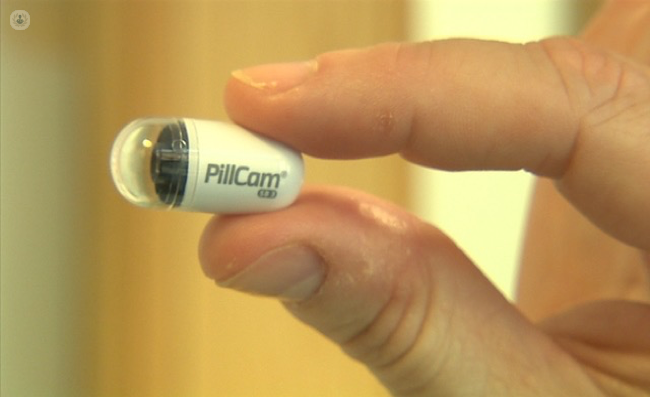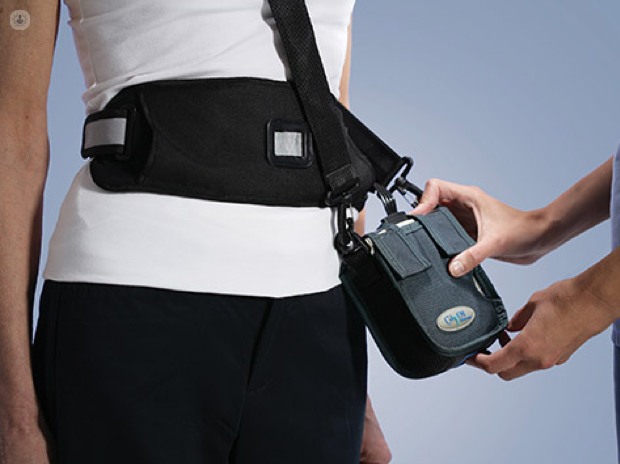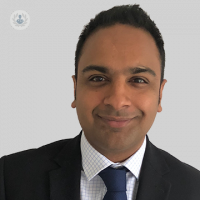When is a video capsule endoscopy recommended?
Written by:Approximately 4 in 10 people have at least one digestive symptom at any one time. Whilst most of these symptoms can be resolved with lifestyle changes, an endoscopy is often needed to determine the root cause of some stomach issues.
A capsule endoscopy allows for the small bowel to be examined. The first capsule was swallowed in 1997 and the procedure has gone on to become commonplace when examining some patients.

Leading consultant gastroenterologist, Dr Amit Chattree recently spoke with us about the procedure, highlighting when a capsule endoscopy would be recommended and how patients should prepare for the procedure in the case that they will need to have one.
Historically the small bowel has been seen as a ‘black box’ in terms of being inaccessible to conventional endoscopy. The small bowel can measure up to 8 metres in some people and is on average about 5 metres long. As such, it has not been possible to access the vast majority of the small bowel in the same way that the rest of the digestive system can be reached. Very often there are concerns that small bowel diseases might have been missed with less accurate small bowel tests such as CT and MRI scanning with the potential for serious conditions remaining undiagnosed and untreated.
Capsule endoscopy is a simple and painless test. A small pill sized video capsule is swallowed and this takes continuous images as it passes though the small bowel to make a video recording of this large area. It is the only method of visualising the entire small bowel in one test. It is invaluable in finding conditions in the small bowel previously missed with other investigations such as tumours, ulcers and bleeding points and can diagnose conditions such as Crohn’s disease, Coeliac disease, Angiodysplasia, small bowel cancers and small bowel polyps.

It is considered the ‘gold standard test’ for assessing the lining of the small bowel and is often undertaken in patients presenting with common symptoms such as anaemia, bleeding, diarrhoea, weight loss and abdominal pain. It can also be used to monitor patients with established small bowel diagnoses such as Crohn’s disease, Coeliac disease, Angiodyplasia and small bowel polyp syndromes.
How do I prepare for a capsule endoscopy?
Preparation for capsule endoscopy involves fasting from food for at least six hours before the test with fluids allowed up to two hours before. Once the capsule is swallowed liquids can be taken almost immediately after whilst food can be consumed from four hours after swallowing the capsule. We sometimes ask patients to take a bowel cleanser the night before to clear the small bowel of debris (half the preparation often required for a colonoscopy) however the test can often be undertaken without any bowel preparation.
On the morning of the test, a special sensor belt to detect the swallowed capsule throughout its passage will be attached around your waist with a small satchel placed around your shoulder with a small video monitor device that allows the capsule's images to be seen in real time. The capsule is them swallowed under supervision and can be seen on the video monitor to ensure that it has been swallowed correctly.
After this, patients can go home and return about eight hours later to return the sensor belt and video monitor device. The capsule itself will pass out naturally when going to the toilet and does not need to be retrieved.

If you feel you will require a capsule endoscopy or if you are suffering from any gastrointestinal symptoms, you may like to book an appointment with a leading gastroenterologist. Visit Dr Amit Chattree’s Top Doctors profile today for more information on how he can help you.
Read more about preparation for a video capsule endoscopy in this leaflet.


